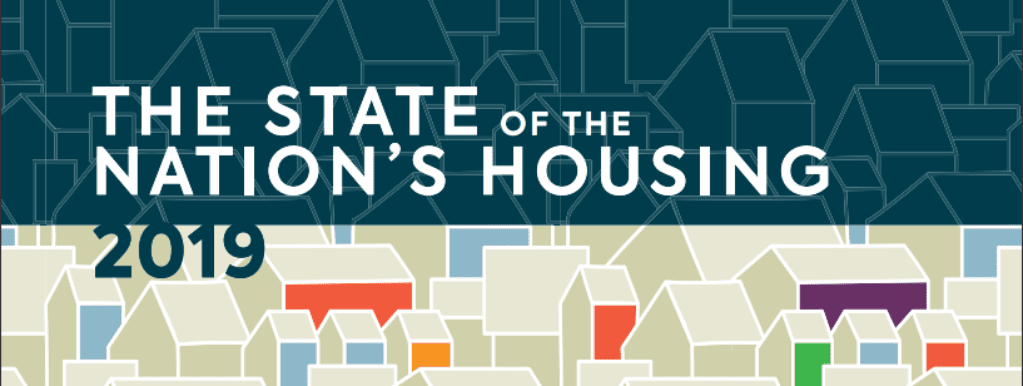
NC Budget Impasse
The back and forth between the Governor’s office and the General Assembly over Medicaid expansion and the budget has not yet yielded a compromise. This morning, upon realizing that Republican leadership did not have the votes to override the Governor’s veto, the Appropriations committee approved a stop-gap spending bill, H.111, that funds a few non-recurring items necessary to draw down federal funds. Not included in the bill was the Workforce Housing Loan Program. The bill is expected to pass out of the House this afternoon and then go to the Senate.
As a reminder, in North Carolina, we do not need to pass continuing resolutions because in the absence of a budget the state automatically reverts to the recurring expenses of the previous biennium’s budget. For housing advocates, this means that the Housing Trust Fund and HOME matching funds will remain level, but the Workforce Housing Loan Program will go to $0. This would be a disaster for affordable housing production in the state should no compromise be reached.
Presidential Housing Policy Proposals
In a change from previous presidential election cycles, housing policy proposals have become prominent features of the campaign platforms of several presidential candidates. So far, four Democratic presidential hopefuls have released specific policy details and the President has recently made public statements about housing policy reforms as well.
President Trump
On June 25th, the administration announced the formation of the White House Council on Eliminating Barriers to Affordable Housing. Citing “excessive costs” due to “restrictive state and local regulatory barriers,” this new Council will make recommendations that “identify and remove obstacles that impede the development of new affordable housing.” This is in addition to consecutive budget proposals that proposed significant cuts to federal investments in housing and community development.
Former Secretary Castro
Having previously served as President Obama’s HUD Secretary and as the mayor of a major American city, Julian Castro has released detailed plans addressing rent burden, homelessness, housing discrimination, predatory lending, and wealth inequality. He has also spoken about these proposals in North Carolina. Among his several housing proposals, Castro would create a renters’ tax credit, expand LIHTC along with other funding source increases, implement a renewed focus on Fair Housing, increase downpayment assistance, and a multi-pronged strategy to end chronic homelessness by 2028. His plan also addresses local zoning issues providing incentives for local units of government to encourage affordable housing production.
Senator Booker
Having also served as a mayor and in other roles at the local government level, Senator Booker has also addressed housing challenges and has spoken about them in North Carolina. His proposal creates a renters’ tax credit and increases housing funding resources, including the National Housing Trust Fund, rural and Native American housing programs, and programs that combat homelessness.
Senator Harris
Senator Harris, who previously served as a state attorney general, recently released a plan to address the long-term impacts of segregation and discriminatory lending practices as well as the resulting racial disparities in wealth and homeownership. Her plan invests $100 billion towards homeownership assistance in the form of downpayment and closing cost grants to residents of historically redlined neighborhoods. She also proposes reforms to credit and lending practices.
Senator Warren
Senator Warren previously served as the head of the Consumer Financial Protection Bureau and was a champion around predatory lending practices. Her proposal focuses primarily on increasing resources to build and preserve affordable housing. Her $500 billion federal investment would come from proposed tax increases on the highest income-earners. In addition to funding, Senator Warren proposes incentives to local governments that make zoning decisions that encourage more affordable housing. Senator Warren also proposes a similar plan to Senator Harris that addresses racial disparities in wealth and homeownership.
NC Housing Coalition opposes HUD’s proposed rule regarding mixed-status families
On July 8th, NCHC submitted comments opposing HUD’s proposed rule change regarding mixed-status immigrant families. The rule change prohibits mixed-status families from being eligible for housing assistance. At a time when cities across the nation face a housing crisis, this proposed rule change will lead to increased homelessness and evictions, rather than creating new housing. We urged the rule to be withdrawn in its entirety, and that HUD’s long-standing regulations remain in effect. You can read our comment here.
Harvard releases annual State of Housing report
On June 25th, the Harvard University Joint Center for Housing Studies released its annual report, The State of the Nation’s Housing, analyzing the U.S. housing supply. With its 2019 report, the Joint Center finds that once again housing production continues to fall short of demand. The report points out that while the U.S. has seen growth in the number of households, however, housing supply has not kept pace. The study highlights homeownership levels as one bright spot, with a homeownership rate that has increased to 64.4 %, with 1.6 million people becoming homeowners in 2018. However, the report points out that affordability is worsening in many areas, with the median home price-to-income ratios increasing for would-be homeowners and rent continuing to increase as a large percentage of renters’ incomes. Homelessness is also on the rise in high-cost areas. To download a copy of the report, visit https://nchousing.org/resource/the-state-of-the-nations-housing-2019/.








